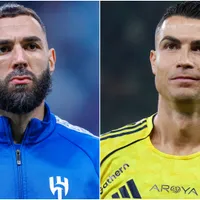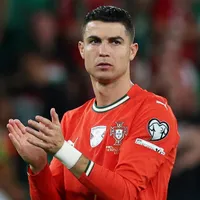
Monterrey (Mexico) (AFP) – They may be considered international minnows, but women footballers from Haiti hope to finally make their mark on the world stage, helped by their experience playing professionally in Europe.
The move across the Atlantic has been challenging for members of the national team, said Nerilia Mondesir, who has played in France since 2017.
“It’s not easy for Haitian women to play football. Opportunities are rare. We have to make sacrifices like leaving our country and family,” said the 23-year-old forward who plays for Montpellier HSC.
Haiti, the poorest country in the Americas, was devastated by earthquakes in 2010 and 2021.
It has also been rocked by political turmoil — including the assassination of president Jovenel Moise a year ago — and a crippling economic crisis.
The hardships have prompted waves of Haitians to leave, many of them heading for the United States in search of the American dream.
Haiti’s football scene has also been shaken by scandal.
In 2020, the country’s football federation president Yves Jean-Bart was banned for life by world body FIFA over allegations that he had sexually harassed and abused various female players, including minors.
– ‘Big leagues’ –
Fourteen members of the Haiti women’s national football team play in Europe, and a handful for universities in the United States, their coach Nicolas Delepine said after their debut at the CONCACAF W tournament in Mexico.
“The first thing we do is to send our players to the big leagues,” the Frenchman said.
The national team hope to break new ground by qualifying in Mexico for the 2023 Women’s World Cup and 2024 Olympics.
They will face Mexico on Thursday after losing 3-0 to two-time reigning World Cup champions the United States in their first match of the eight-team tournament in Monterrey.
Despite the thrashing, US captain Megan Rapinoe credited the Haitians with “a lot of individual talent.”
While Rapinoe appeared before the press to hail a recent landmark equal pay deal in her country after the game, the Haitians left the stadium quietly.
Only Mondesir, somewhat surprised, shyly accepted a couple of questions from the press.
Playing in Europe had not been easy for Haitians who lack experience, she said.
“In professional teams, you have to work more than players from other countries,” she said.
Losing to the United States in Monterrey will help the Haitians to grow stronger, Mondesir said, adding: “We learned a lot.”
The two top teams in each group will advance to the semi-finals and next year’s Women’s World Cup, with third-place group teams advancing to next February’s global playoff for three final Women’s World Cup spots.
The CONCACAF champion will advance to the Paris Olympics while the runner-up and third-place teams will meet in a playoff next year to determine another 2024 berth in France.
The Haitians’ coach is confident that the minnows will one day achieve their dream of competing in a World Cup.
“Haiti is a small country, but it’s a big country when it comes to football,” Delepine said.














